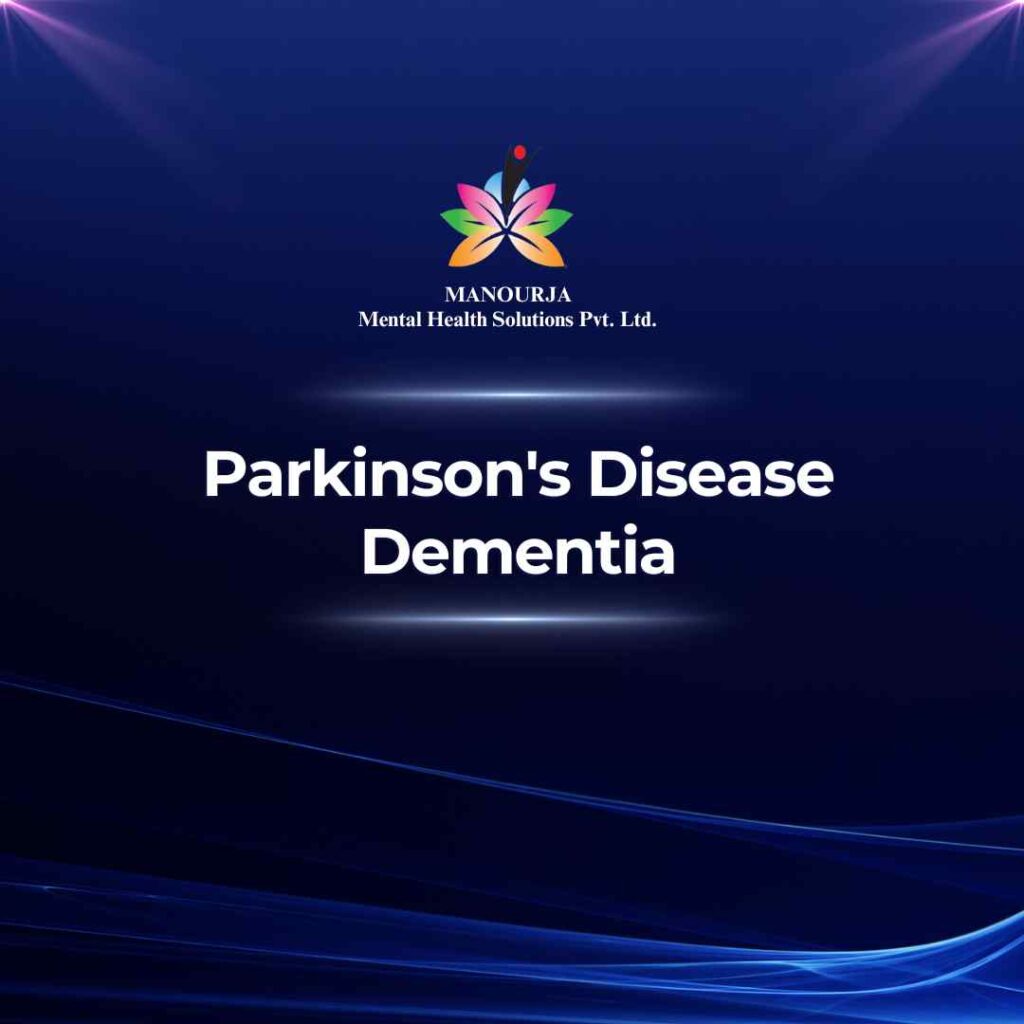Parkinson’s Disease: Dementia

Parkinson’s Disease Dementia (PDD) refers to the cognitive decline and dementia that can develop in individuals with Parkinson’s disease (PD), a neurodegenerative disorder primarily known for its motor symptoms. Here’s an overview of the meaning, characteristics, forms, and treatment of Parkinson’s Disease Dementia:
Meaning
Parkinson’s Disease Dementia (PDD) is a progressive neurodegenerative condition characterized by cognitive impairment, including memory loss, executive dysfunction, and changes in behavior and mood. It typically develops in individuals with Parkinson’s disease as the disease progresses, though not all individuals with PD will develop dementia.
Symptoms
- Memory Impairment: Individuals with PDD often experience difficulties with memory recall and retention, particularly in relation to recent events and information.
- Executive Dysfunction: Executive functions such as planning, problem-solving, and decision-making may become impaired, leading to difficulties in daily activities and tasks.
- Visuospatial Impairment: PDD can affect an individual’s ability to perceive and navigate spatial relationships, leading to problems with balance, coordination, and visual perception.
- Behavioral and Mood Changes: Individuals with PDD may exhibit changes in behavior, mood, and personality, including apathy, depression, anxiety, irritability, and agitation.
- Hallucinations and Delusions: Psychotic symptoms, such as hallucinations (seeing or hearing things that are not there) and delusions (false beliefs), can occur in some individuals with PDD.
Forms
Parkinson’s Disease Dementia (PDD) is considered a subtype of dementia with Lewy bodies (DLB), another neurodegenerative disorder characterized by the presence of abnormal protein deposits in the brain. PDD and DLB share similar clinical features, including cognitive impairment, motor symptoms, and visual hallucinations. However, the timing of cognitive decline relative to the onset of motor symptoms distinguishes PDD from DLB. In PDD, cognitive impairment typically develops years after the onset of motor symptoms characteristic of Parkinson’s disease.
Treatment
The treatment of Parkinson’s Disease Dementia (PDD) focuses on managing symptoms, optimizing quality of life, and providing support to individuals and their caregivers. Treatment strategies may include:
- Medications: Cholinesterase inhibitors, such as donepezil, rivastigmine, and galantamine, may be prescribed to help improve cognitive function and manage behavioral symptoms in individuals with PDD.
- Levodopa Therapy: Adjustments to levodopa therapy, the primary medication used to manage motor symptoms in Parkinson’s disease, may be made to address cognitive symptoms in individuals with PDD.
- Psychosocial Interventions: Psychosocial interventions, including cognitive rehabilitation, occupational therapy, speech therapy, and support groups, can help individuals with PDD and their caregivers cope with the challenges of cognitive decline and dementia.
- Management of Motor Symptoms: Optimal management of motor symptoms, such as bradykinesia (slowness of movement), rigidity, and tremor, can improve overall functioning and quality of life in individuals with PDD.
Conclusion
Parkinson’s Disease Dementia (PDD) is a complex and challenging condition that can significantly impact the lives of individuals with Parkinson’s disease and their caregivers. Early recognition and intervention, along with a comprehensive treatment approach addressing both cognitive and motor symptoms, are essential for optimizing outcomes and maintaining quality of life in individuals with PDD. Close collaboration between healthcare professionals, including neurologists, geriatricians, psychiatrists, and allied health professionals, is crucial for providing effective care and support to individuals with PDD and their families.
At MANOURJA, we believe in the transformative power of counseling. Our experienced therapists offer a safe and supportive space where you can explore your thoughts, emotions, and challenges. Through personalized counselling sessions, we’ll work together to develop coping strategies, build resilience, and achieve lasting positive change. Discover the path to a healthier, happier you with MANOURJA counselling services.
MANOURJA Rehabilitation Services
At MANOURJA, we’re dedicated to helping you in rebuild your life, after difficult times. Our rehabilitation services focus on understanding what you need to move forward, whether you’re recovering from addiction, trauma, or any psychological – social challenges. We create personalized plans, that are all about helping you, regain your strength and find hope again. With a caring team by your side, you’ll have the support to make real progress and take steps toward a brighter, healthier future.
